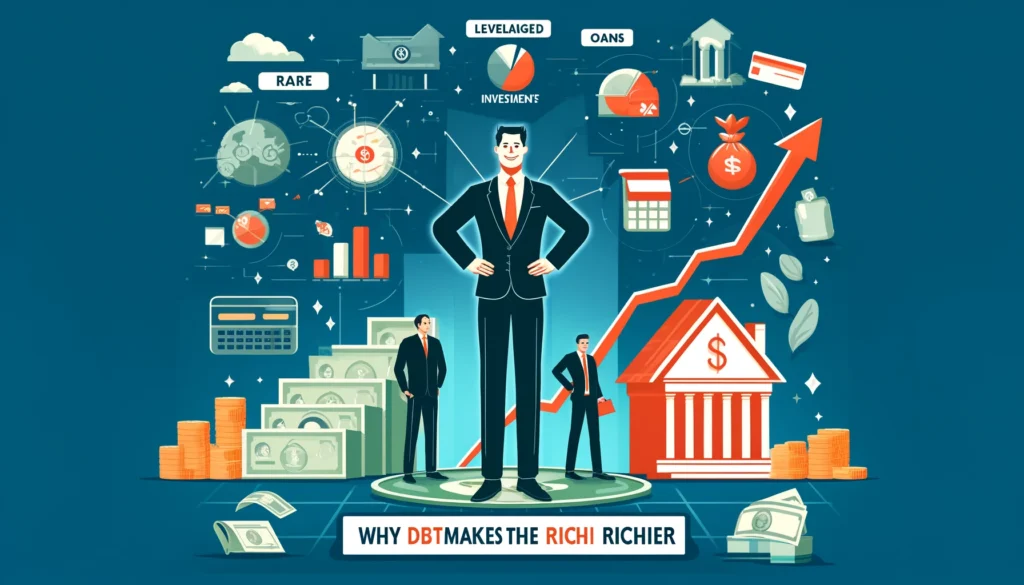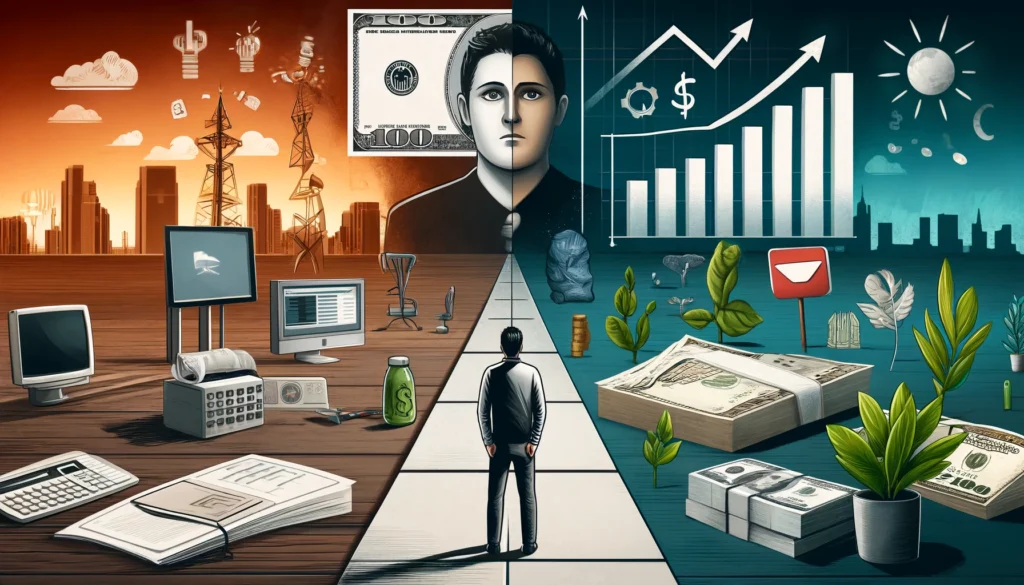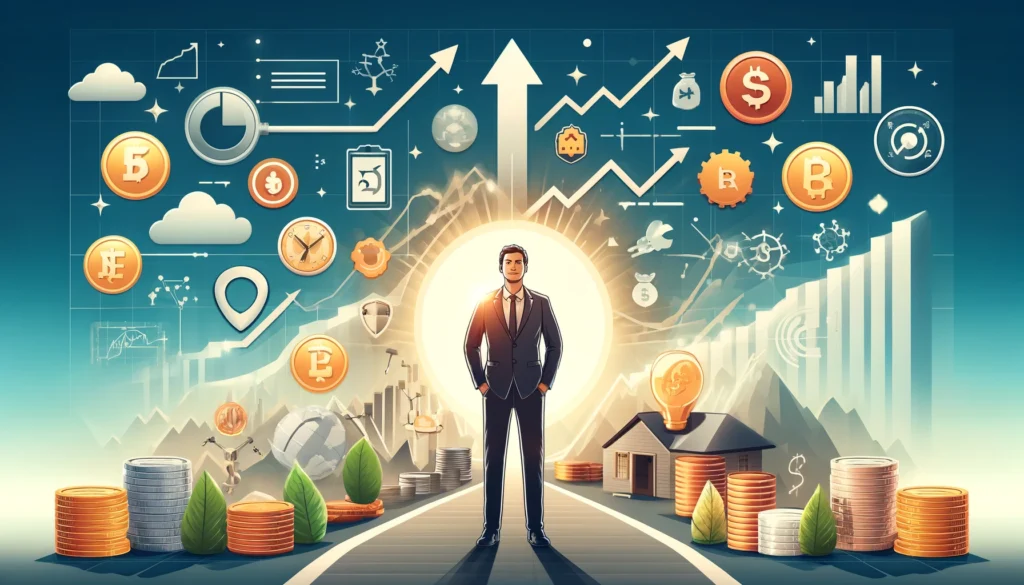- Debt makes the rich richer and the middle class and poor poorer…
- Infinite return is the best return….
- I want YOU to learn how to use debt to your advantage…
Dear Reader,
Debt is money. One reason why the rich grow richer is because they use debt to become richer. Unfortunately, without financial education, debt makes the poor and middle class poorer. Donald Trump summed it up, saying: “You know I am the king of debt. I love debt, but debt is tricky, and it is dangerous.”
The housing market crashed when mortgage bankers began lending money to subprime borrowers, people who (in many cases) were without jobs and were encouraged to buy homes they could not afford. Millions of middle-class homeowners lost their homes when they began using their home as an ATM.
Today, student loan debt is over $1.5 trillion—greater than all credit card debt. It is the largest source of income for the U.S. government. Although student loan debt makes the students who do not complete school poorer, student loan debt makes the U.S. government richer.
How Debt Makes the Rich Richer
When I speak to groups around the world, I’m often asked this question: How does debt make the rich richer?
I will use credit cards as an example to illustrate this. Let’s say you receive a new credit card. There is no money in that credit card. All you have is credit. You go shopping and buy a new pair of shoes that cost $100. You use your new credit card and—like magic—$100 of “money” has been created. At the same time $100 in debt has also been created. The $100 flows into the economy and people are happy. The problem is, you now have to work and pay off that $100 in debt.
One reason is that the economy grows when you and I create money by borrowing money. When you pay off your debt, the economy gets smaller. Another reason is that debt makes the rich richer. If debt did not make the rich richer, the rich would not issue you a credit card.
The rich don’t issue credit cards because they like you. They give you credit because they will make money, via interest, when you use your credit card. They’ll make even more when you make only minimum payments on credit card balances.
Money for Nothing
In the example of the credit card and new shoes, the $100 was created out of nothing. The moment the credit card was used, the $100 of debt became an asset for the rich and the same $100 became a liability for the poor and middle-class credit card holder.
That is what happened when the real estate market began to crash in 2007. Millions of people thought they were rich because they had equity in their homes—equity that many people had used as their personal ATMs. And then, suddenly, the market crashed, and they were upside down. They’ve owed more on their home than it was worth. Overnight, they were poor. Many lost everything.
That is why Kim and I created the CASHFLOW board game. It is the only financial education game that encourages players to use debt to win the game.
Rich Debtors
Apple, one of the richest companies in the world, has approximately $246 billion sitting in the bank. Yet it has borrowed billions of dollars over the past few years because of low interest rates. Why does Apple borrow? Apple borrows because debt is cheaper than repatriating cash, which means bringing money back into the country and paying U.S. taxes on it.
Rich CEOs
Many corporate executives are paid in stock options rather than money. This causes CEOs to borrow money and buy back their company shares. When the share price goes up, the CEOs and executives sell their “options” at high prices, making them richer… but making the company employees and shareholders poorer.
Since the 1970s, many CEOs have been using debt to speculate in the stock market rather than use debt to grow the company and create more jobs.
Learning to Use Debt
So, how does a person learn to use debt as money? I’ll start with a story you may have heard before.
In 1973, the year I returned to Hawaii from Vietnam, my poor dad suggested I go to graduate school to get my MBA. My rich dad suggested I learn to invest in real estate.
My poor dad encouraged me to become a high-paid employee in the E quadrant. My rich dad encouraged me to be a professional investor in the I quadrant.
While watching television one day, an infomercial came on advertising a free seminar on investing in real estate. I attended the free seminar, liked what I heard, and invested $385 for a three-day course. That $385 was a lot of money at the time, because I was still in the Marine Corps and not making much money.
The three-day program was great. The instructor was real—a rich, experienced, and successful investor who loved to teach. I learned a lot from him. At the end of the program, the instructor gave me some of the best advice I have ever received. He said, “Your education begins when you leave the class.”
His assignment was for all of us to get together in groups of three to five students to look at and write an evaluation of 100 properties that were for sale. He gave us 90 days to complete the assignment. He didn’t want us to buy anything, or invest any money, for at least 90 days.
After 90 days of looking at and writing one-page evaluations on 100 properties, I identified my first real estate investment opportunity. It was a 1-bedroom/1-bath condominium, next to the beach on the island of Maui. The entire development was in foreclosure and the price for the condo was $18,000. The seller was offering 90% financing.
All I had to do was come up with $1,800 for a 10% down payment. I handed the real estate broker my credit card for the down payment and the property was mine. I purchased my first investment property with 100% OPM—Other People’s Money. I had none of my own money in the investment.
At the end of every month, after all the expenses were paid, including debt service and management fees, the property put approximately $25 in my pocket, an infinite return on my investment. It was an infinite return because I didn’t have any of my own money in the deal.
While $25 a month is not a lot of money, the lessons learned have proven to be priceless. This first small investment that taught me that debt is money and debt is tax-free.
Regards,
Robert Kiyosaki
Contributor, Freedom Financial News




